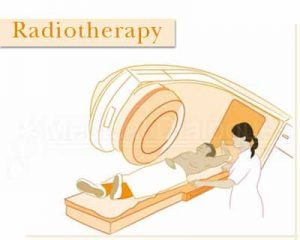- Home
- Editorial
- News
- Practice Guidelines
- Anesthesiology Guidelines
- Cancer Guidelines
- Cardiac Sciences Guidelines
- Critical Care Guidelines
- Dentistry Guidelines
- Dermatology Guidelines
- Diabetes and Endo Guidelines
- Diagnostics Guidelines
- ENT Guidelines
- Featured Practice Guidelines
- Gastroenterology Guidelines
- Geriatrics Guidelines
- Medicine Guidelines
- Nephrology Guidelines
- Neurosciences Guidelines
- Obs and Gynae Guidelines
- Ophthalmology Guidelines
- Orthopaedics Guidelines
- Paediatrics Guidelines
- Psychiatry Guidelines
- Pulmonology Guidelines
- Radiology Guidelines
- Surgery Guidelines
- Urology Guidelines
Low doses of radiation could harm cardiovascular health : study

Dr Soile Tapio and Dr Omid Azimzadeh of Helmholtz Zentrum München, German Research Center for Environmental Health, and colleagues studied how human coronary artery endothelial cells respond to a relatively low radiation dose of 0.5 Gy and found several permanent alterations in the cells that had the potential to adversely affect their essential functions.
Endothelial cells, which form the inner layer of blood vessels, were found to produce reduced amounts of nitric oxide, an essential molecule in several physiological processes including vascular contraction. Previously, high-dose radiation (16 Gy) has been shown to persistently reduce levels of nitric oxide in the serum of mice, but this is the first study to indicate impaired nitric oxide signaling at much lower doses.
Cells damaged by low-dose radiation also produced increased amounts of reactive oxygen species (ROS), which are formed as a natural byproduct of normal oxygen metabolism and play an important role in cell signaling. Increased ROS can damage DNA and proteins.
In addition, exposed cardiac endothelial cells were found to have reduced capacity to degrade oxidised proteins and to be aging prematurely. Such harmful changes did not occur immediately (that is, within a day) but first began in the longer term (one to two weeks). As these cells do not divide rapidly in the body, this observed time in the cell culture would correspond to several years in the living organism.
All these molecular changes are indicative of long-term premature dysfunction and suggest a mechanistic explanation to the epidemiological data showing increased risk of cardiovascular disease after low-dose radiation exposure, the authors conclude.

Disclaimer: This site is primarily intended for healthcare professionals. Any content/information on this website does not replace the advice of medical and/or health professionals and should not be construed as medical/diagnostic advice/endorsement or prescription. Use of this site is subject to our terms of use, privacy policy, advertisement policy. © 2020 Minerva Medical Treatment Pvt Ltd